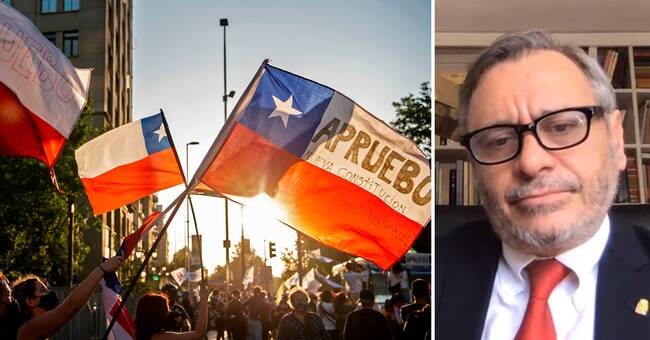It has been a year since a series of large and violent demonstrations shook Chile.
"El estallido", or "outbreak" as the protests came to be called, began as a reaction to higher fares in the Santiago metro, but quickly grew into nationwide protests demanding higher living standards and social equality.
"One of the demonstrators' demands was to change the constitution to create a more just society," said Pablo Ruiz-Tagle, a constitutional expert and dean of the University of Chile's law school.
Controversial since the start
The current constitution was adopted in 1980 under the military junta of dictator Augusto Pinochet.
According to Pablo Ruiz-Tagle, it reflects many of the ideals of the Pinochet dictatorship.
It gives the presidency an unusually large power in relation to the parliament and emphasizes market-liberal values in relation to welfare issues.
- Rights are designed as freedoms, Ruiz-Tagle explains and continues:
- The constitution gives you, for example, the right to choose between going to a private hospital and a public hospital, but no more than that.
At the same time, Chile is a country with great economic inequality (highest income disparities of all OECD countries) and one of the demonstrators' demands has been to demand greater responsibility from the state to provide basic welfare.
Strong symbol value
The fact that the constitution was created during the military dictatorship is also in itself a reason why many now want to change it, says Andrés Rivarola, director of the Nordic Latin American Institute at Stockholm University.
- There is a very strong symbolic value in that change, he says.
A new constitution could also create greater legitimacy for the political system in Chile, he argues.
Today, confidence in the political establishment is low.
Long way to a new constitution
Exactly what a new constitution may look like, no one yet knows.
Sunday's referendum will answer two questions: whether Chile will begin work on a new constitution and who will be responsible for drafting it.
After that, another referendum will probably be required before a new constitution can be adopted.
How long such a process can take is unclear, but it may be a couple of years.

